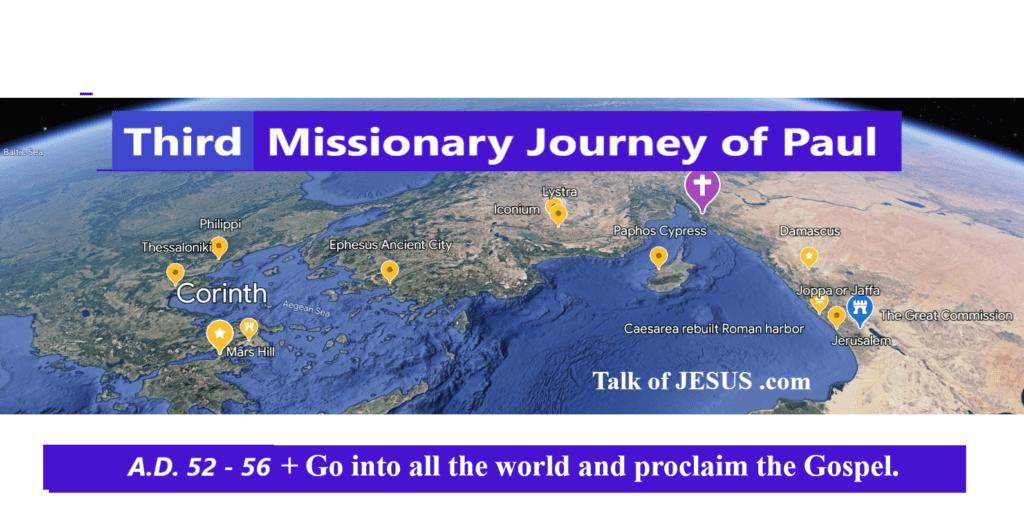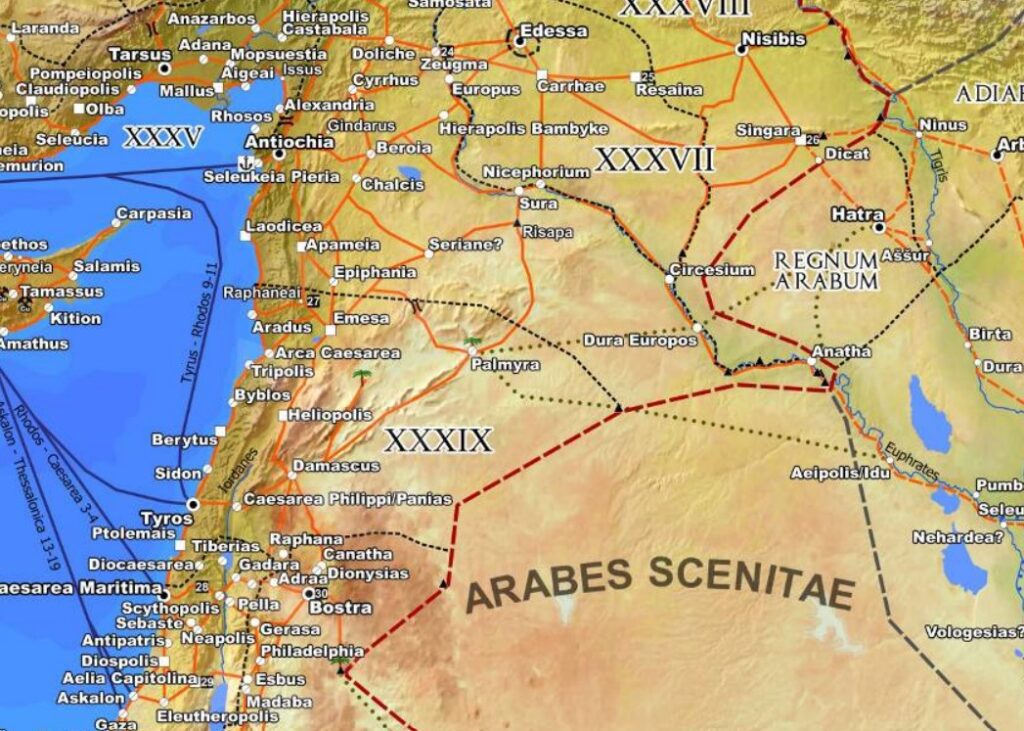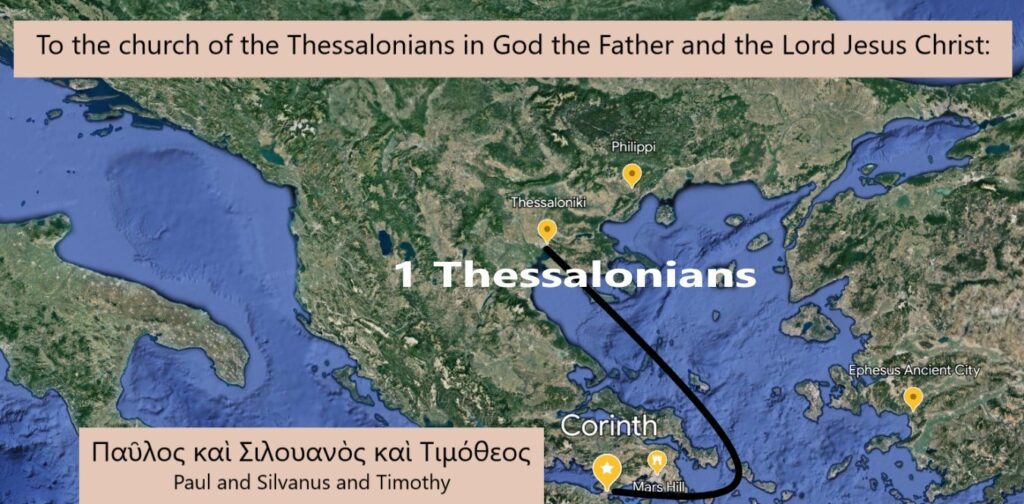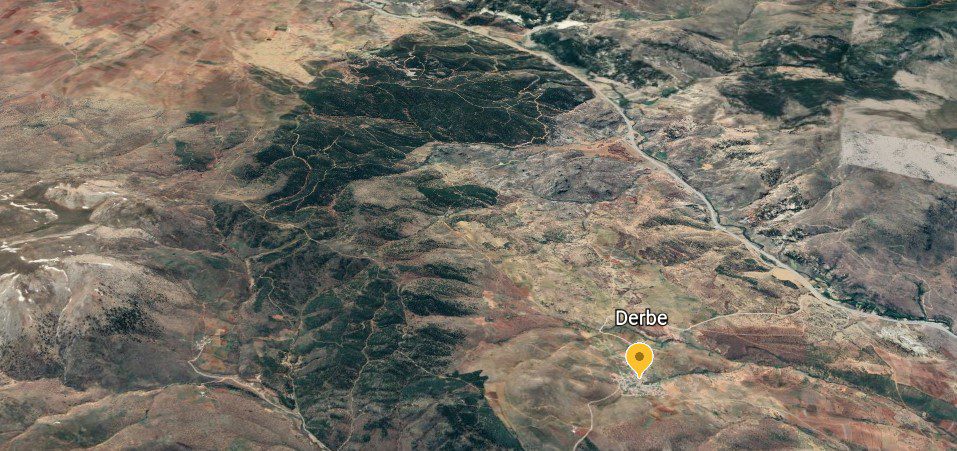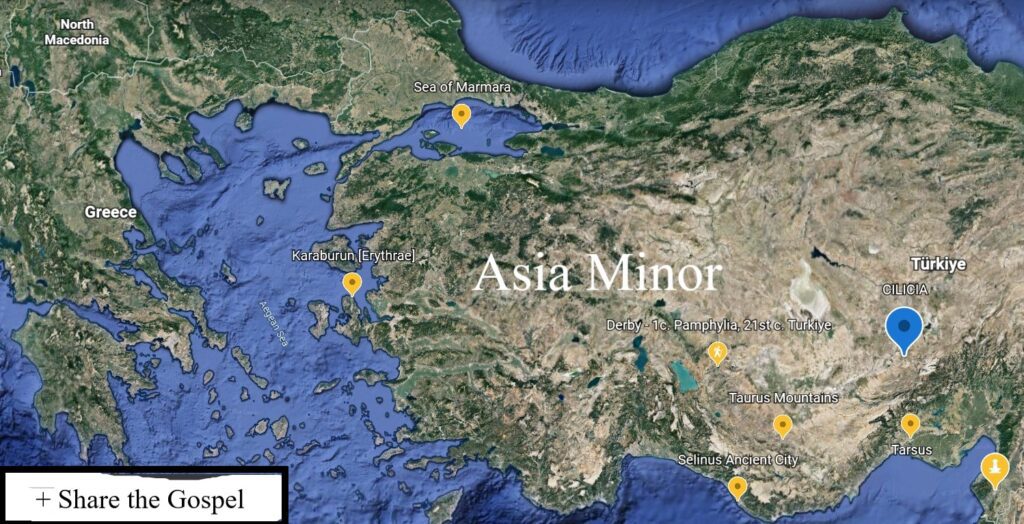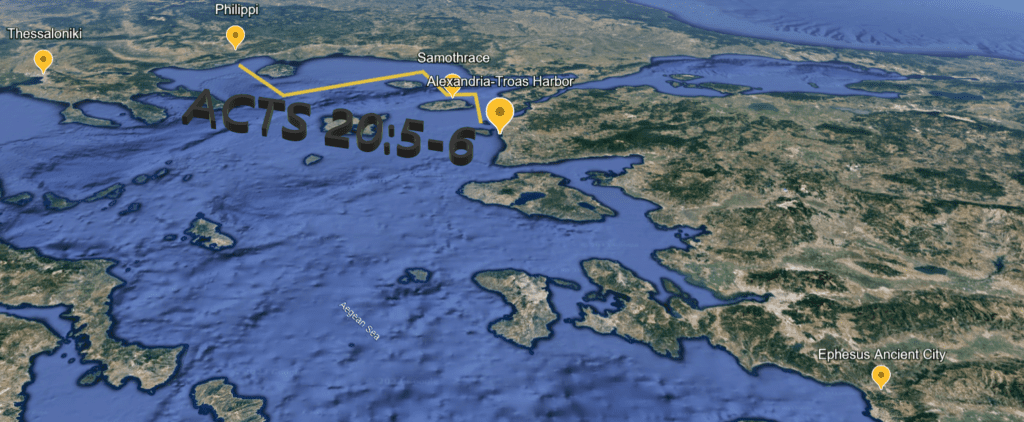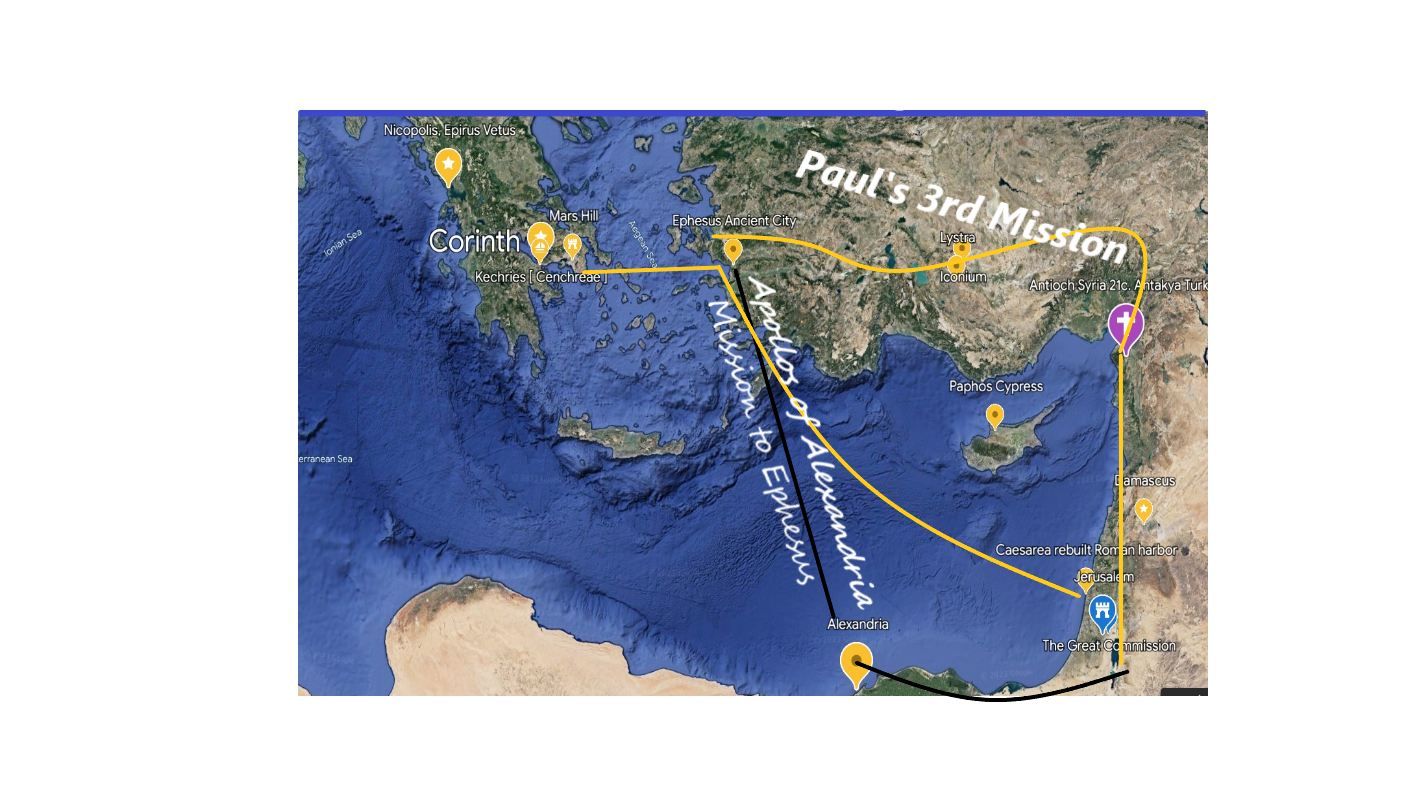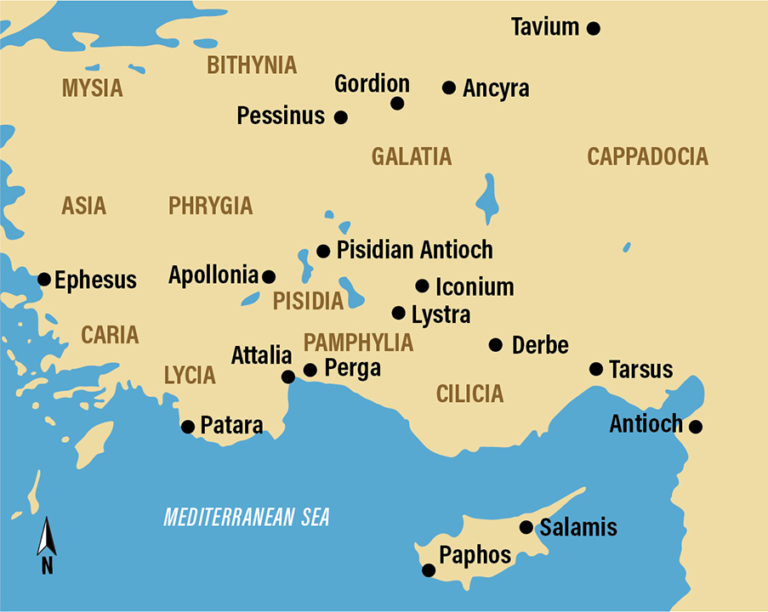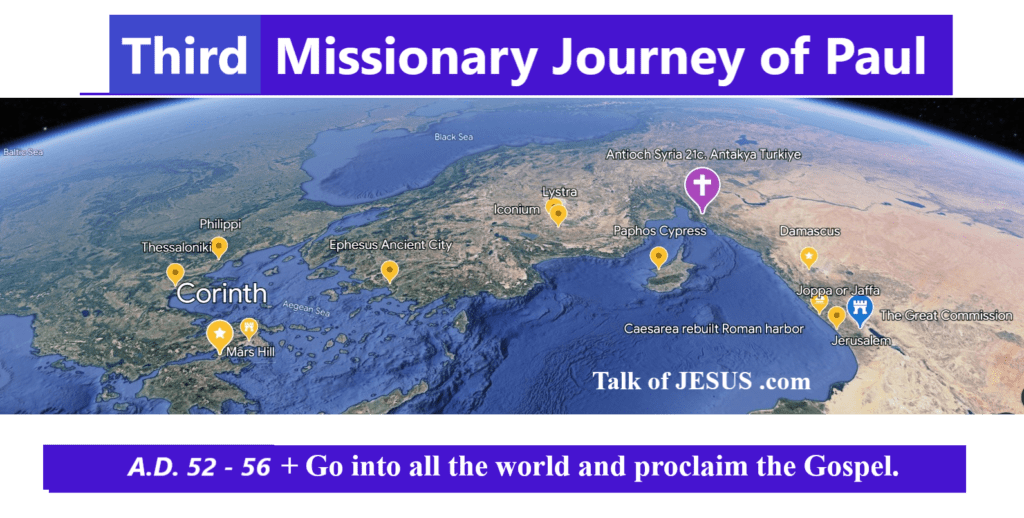Paul has just sent for the Ephesian Elders and is about to address them as at the conclusion of his third missionary journey as the Apostle departs for Jerusalem.
Serving the Lord with humility and tears
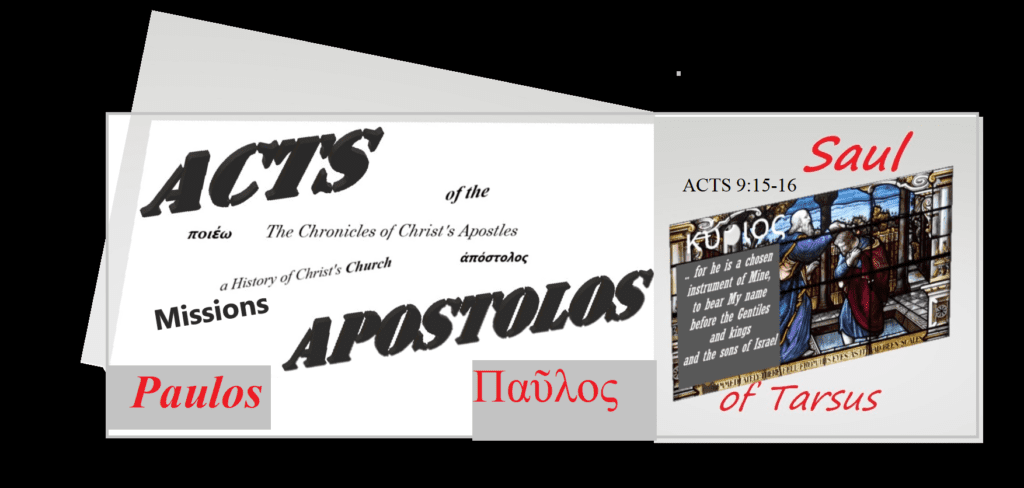
+ in a broader sense applied to other eminent Christian teachers
The *apostles' tearful departure from Ephesus - Let us recall so many close relationships of those brothers and sisters of the church at Ephesus and especially their elders who have travelled to see Paul once more. Remember also the several men and women sent out to the Church who now travel with the Apostle Paul as these apostles will now set sail back toward Antioch and Jerusalem.
Acts of the Apostles 20:
18 And when they had come to him, he said to them,
“You yourselves know, from the first day that I set foot in Asia, how I was with you the whole time, serving the Lord with all humility and with tears and with trials which came upon me through the plots of the Jews;
how I did not shrink from declaring to you anything that was profitable,
solemnly testifying to both Jews and Greeks
about repentance toward God
and faith in our Lord Jesus Christ.
Paul’s farewell message to the Ephesians at Miletus – Acts of the apostles 20:18b-21- LSB
Ephesus, of course, was a key Roman port on the Aegean and entry into Asia (Asia Minor or Turkiye).
Jews from European capitals like Rome resided in nearly every port connected to the far-reaching Mediterranean ruled by Roman commerce and Legions under the command of the Caesars.
Three centuries earlier Asia Minor had been Alexander’s Macedonian route east to the Babylonian and Persian cities the Jews knew all too well.
Greeks of Asia Minor
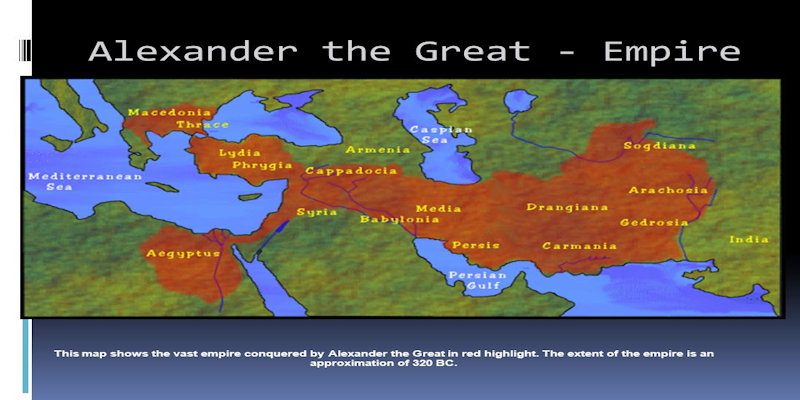
In winter 334–333 B.C. Alexander [the Great had] conquered western Asia Minor, subduing the hill tribes of Lycia and Pisidia, and in spring 333 B.C. he advanced along the coastal road to Perga.. [eventually defeating King Darius of Persia]. - Source https://www.britannica.com/biography/Alexander-the-Great
solemnly testifying to both Jews and Greeks
Without reiteration of the great cultural divisions previously addressed (by the Council of Jerusalem) we affirm that the Gospel remains the same for all men and women, namely:
- about repentance toward God and faith in our Lord Jesus Christ.
The Apostle Paul continues in his testimony to the Ephesian Elders:
And now, behold, bound by the Spirit, I am on my way to Jerusalem, not knowing what will happen to me there, except that the Holy Spirit solemnly testifies to me in every city, saying that chains and afflictions await me.
Paul does NOT say to the Ephesian Elders that he has met them in Miletus, a place away from their home church, to avoid previous problems.
The Apostle affirms that just as he had been called on his first mission to them, so too Paul is now called toward Jerusalem to endure more suffering in the Name of Jesus Christ.
And in the Apostle’s usual humble manner he assures them.
But I do not make my life of any account nor dear to myself, so that I may finish my course and the ministry which I received from the Lord Jesus, to testify solemnly of the gospel of the grace of God.
Acts of the Apostles 20:24 LSB
The Apostle Paul now proceeds with his most personal exhortation of these beloved Ephesian leaders by speaking his greatest concerns for the Ephesians once he has departed.
Remember our Three Years together
Let us briefly hear as obedient subjects of the Authorized Kings James Version of the Acts of the Apostles:
Take heed therefore unto yourselves, and to all the flock, over the which the Holy Ghost hath made you overseers, to feed the church of God, which he hath purchased with his own blood.
For I know this, that after my departing shall grievous wolves enter in among you, not sparing the flock.
ACTS 20:28-29 AKJV – Paul’s passing of the baton of leadership to the Ephesian elders
Indeed, the HOLY GHOST has made YOU, the LOCAL BISHOPS of your flock..
.. to shepherd the church of God which He purchased with His own blood. [LSB]
“Be on guard for yourselves and for all the flock..
ACTS 20:28a LSB
And where will the Church first encounter these ‘savage wolves,’ which the LSB calls these predatory preachers of false gospels?
.. and from among your own selves men will arise, speaking perverse things, to draw away the disciples after them.
ACTS 20:30 LSB
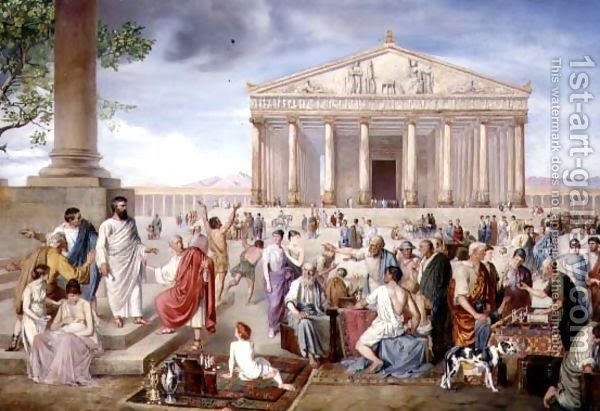
“Therefore be watchful, remembering that night and day for a period of three years I did not cease to admonish each one with tears.
Acts 20:31 LSB – Paul to the Ephesian elders
I commend you to God
And now I commend you to God and to the word of His grace, which is able to build you up and to give you the inheritance among all those who have been sanctified.
Paul’s benediction and blessing are most gracious. The Apostle begins by commendation (note the full meaning linked & outlined here).
- to place down (from one’s self or for one’s self) with any one
- to deposit
- to intrust, commit to one’s charge
The Apostle then sets forth his own example of these past three years:
[AKJV] 33 I have coveted no man’s silver, or gold, or apparel. 34 Yea, ye yourselves know, that these hands have ministered unto my necessities, and to them that were with me.
“In everything I showed you that by laboring in this manner you must help the weak
and remember the words of the Lord Jesus, that He Himself said,
‘It is more blessed to give than to receive.’”
Acts of the Apostles 20:35 Legacy Standard Bible – Paul’s parting words to the Ephesian elders at Miletus
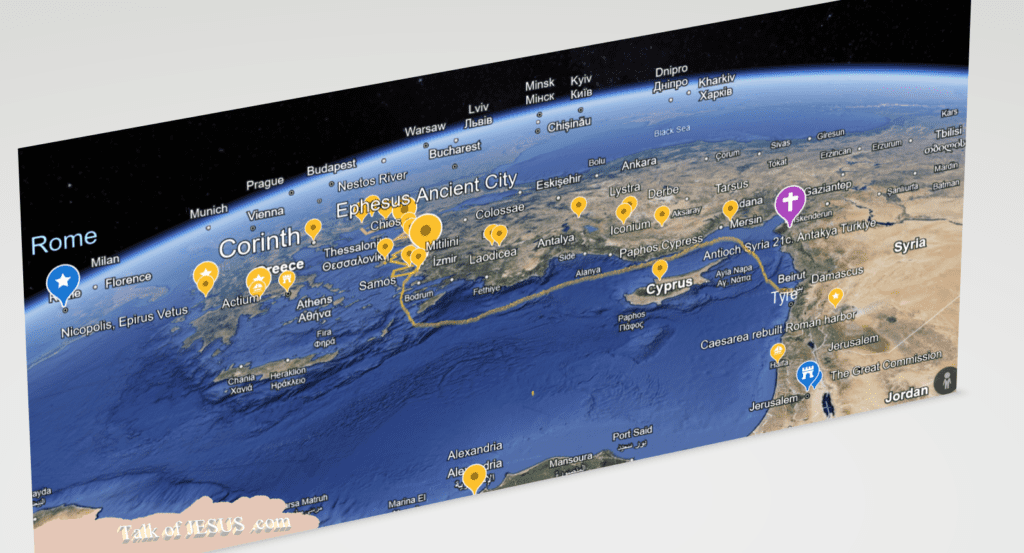
The Ephesian elders gathered at Miletus with Paul and the missionaries of his third journey must have pictured the apostles' departure at hand.
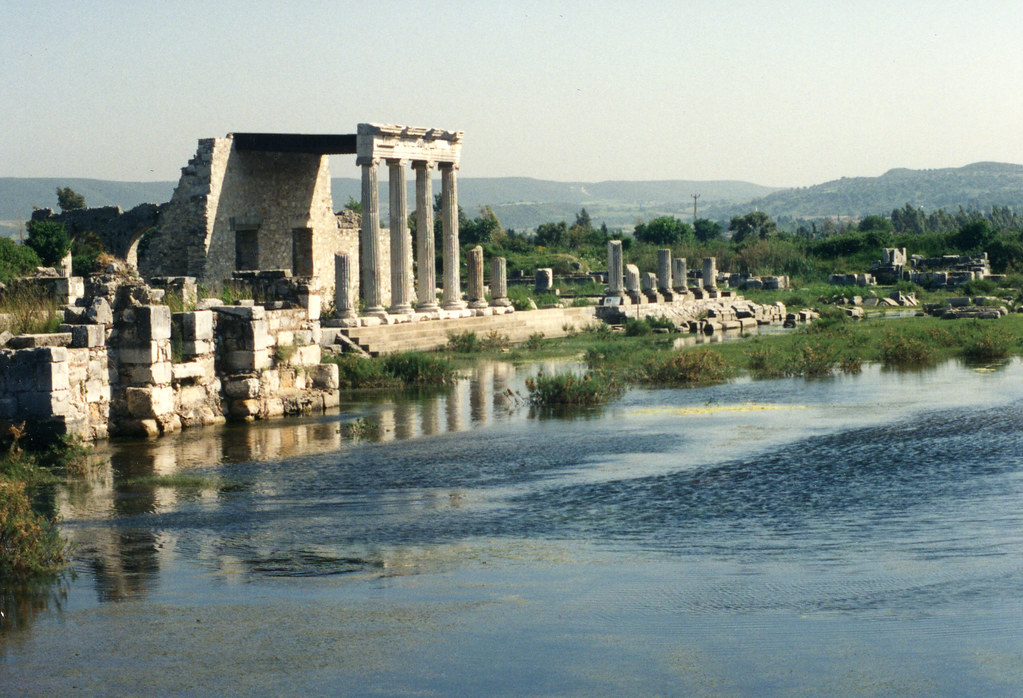
And when he had said these things, he knelt down and prayed with them all.
Then they all wept freely, and fell on Paul’s neck and kissed him, sorrowing most of all for the words which he spoke, that they would see his face no more.
Acts of the Apostles 20:37-38a – New King James Version
And they accompanied him to the ship.


